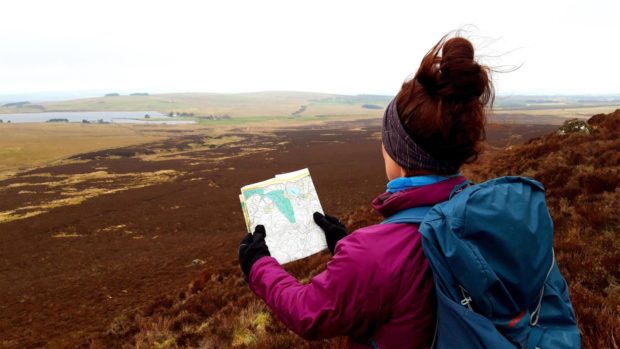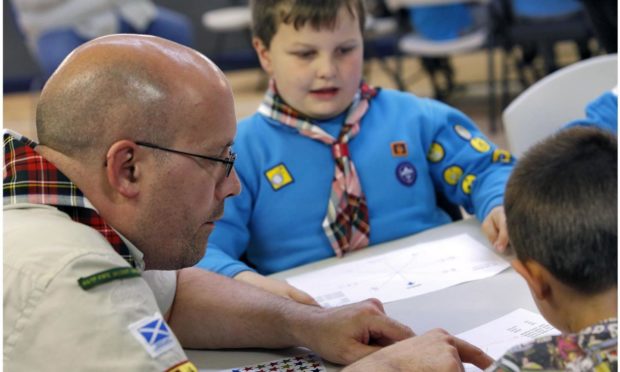You need to know how to read a map – as well as giving you an overview of the world you live in, it might just save your life.
That is the message from north-east youth groups and education bodies during National Map Reading Week.
Ordnance Survey introduced the campaign to increase public use of maps, whether for recognising cities or hillwalking.
Its introduction followed a public survey in 2016 that showed many people could not place key cities such as London and Birmingham on a map.
The rise of smartphones, GPS and satnav have made it seem an outdated skill to some.
Regional commissioner for North East Scouts Dougie Simmers said: “Map reading is still a critical skill that everyone should have.
“While there are many electronic alternatives available now, batteries run out, connectivity fails, unexpected emergency situations arise.
“In the Scouts, we cover all different technologies in conjunction with teaching the basics of map reading that underpins an understanding of all the electronic options.”

The worry over loss of skills is not a new one. Historian and cartographer John Brian Hartley expressed concerns over the loss of traditional map reading skills as digital mapping was developed in the 1980s.
Local knowledge poorer than previous generations
Mr Simmers said that young people’s wider understanding of the world around them was better than previous generations.
However, reliance on electronic technologies had left them poorer in other respects.
“In our experience of young people who newly join the Scouts, basic details of local knowledge seem to be poorer than in previous generations,” he said.
“We therefore work with them over time to teach them a broad range of life skills including map-reading.
“Map-reading is critically important in emergency situations, especially when the battery runs down in your smart phone.
“Without a map, compass and the basic skills to use them, you’re lost and you could struggle to get yourself out of harm.
“Also if you have an incident, you may need to preserve your phone’s battery life for contact with the emergency services.
“But even for those electronic services such as GPS and what3words, these go hand in hand with good map skills.
“So teaching our young people these sorts of skills is crucial.
“It could be a simple walk around the local area and pointing out the details on a map, right up to being able to lead an adventurous hike through remote terrain, hours from any road infrastructure.”
Map skills still relevant in modern world
A spokeswoman for Education Scotland said: “Mapping is an integral part of the geography curriculum, and one which still motivates and challenges children and young people.
“Map skills are also examined by the SQA in the geography national qualifications.
“The ability to read and use maps is still a relevant skill in the modern world.
“For leisure activities such as hill walking, the ability to read a map is vital.
“Map skills form an important part of outdoor learning and enable children to take part in activities including orienteering.
“And for jobs such as land surveying, good map skills is a distinct advantage.”
Learn more about map reading and National Map Reading Week here.
